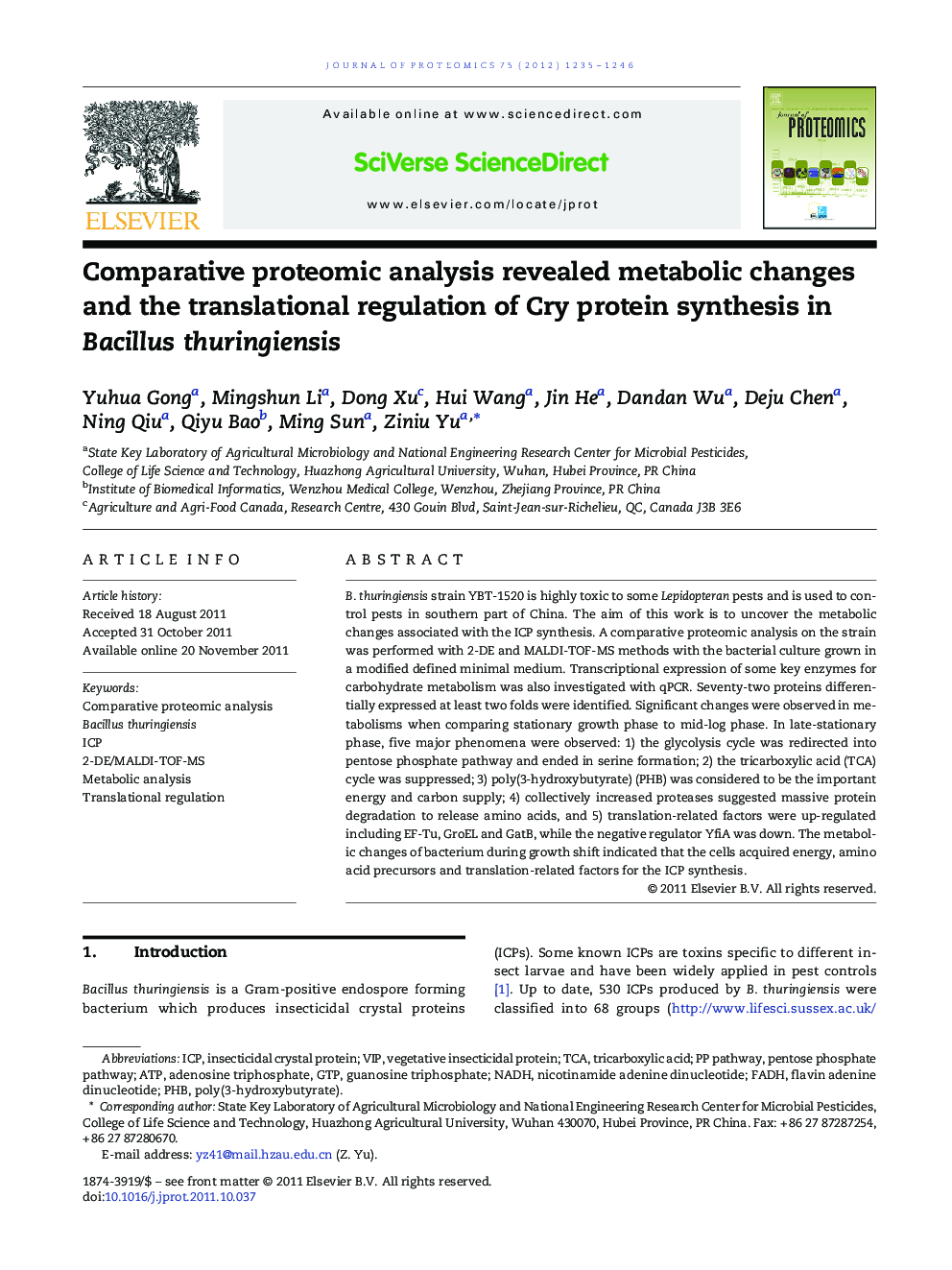| Article ID | Journal | Published Year | Pages | File Type |
|---|---|---|---|---|
| 1227026 | Journal of Proteomics | 2012 | 12 Pages |
B. thuringiensis strain YBT-1520 is highly toxic to some Lepidopteran pests and is used to control pests in southern part of China. The aim of this work is to uncover the metabolic changes associated with the ICP synthesis. A comparative proteomic analysis on the strain was performed with 2-DE and MALDI-TOF-MS methods with the bacterial culture grown in a modified defined minimal medium. Transcriptional expression of some key enzymes for carbohydrate metabolism was also investigated with qPCR. Seventy-two proteins differentially expressed at least two folds were identified. Significant changes were observed in metabolisms when comparing stationary growth phase to mid-log phase. In late-stationary phase, five major phenomena were observed: 1) the glycolysis cycle was redirected into pentose phosphate pathway and ended in serine formation; 2) the tricarboxylic acid (TCA) cycle was suppressed; 3) poly(3-hydroxybutyrate) (PHB) was considered to be the important energy and carbon supply; 4) collectively increased proteases suggested massive protein degradation to release amino acids, and 5) translation-related factors were up-regulated including EF-Tu, GroEL and GatB, while the negative regulator YfiA was down. The metabolic changes of bacterium during growth shift indicated that the cells acquired energy, amino acid precursors and translation-related factors for the ICP synthesis.
Graphical abstractFigure optionsDownload full-size imageDownload high-quality image (141 K)Download as PowerPoint slideHighlights► We constructed a proteomic analysis of B. thuringiensis strain YBT-1520 at different growth phases by 2-DE and MALDI-TOF-MS. ► We analyzed the metabolic changes associated with the synthesis of ICPs in B. thuringiensis. ► The change of the growth state of the bacterium from log to stationary phase revealed a significant transition in the bacterial metabolic mode. ► The cells acquired enough energy and amino acid precursors for the ICPs synthesis in stationary phase.
